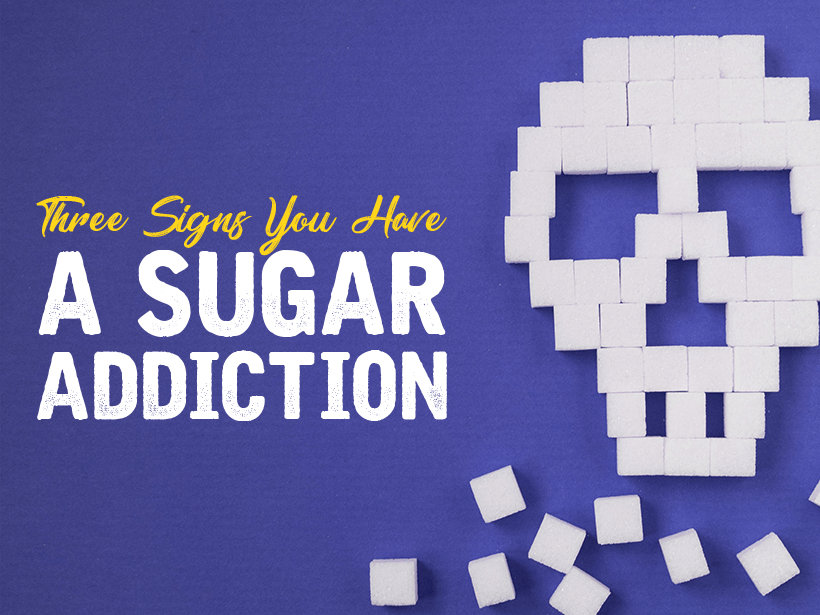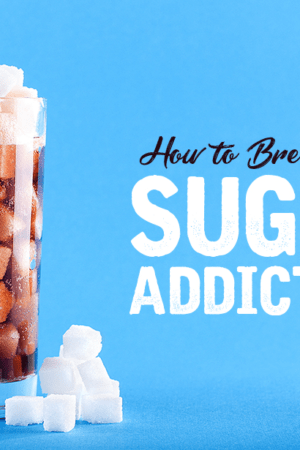Overconsumption of sugar is at an all-time high. As the obesity crisis in America continues to expand (no pun intended), so has our obsession with sugary sweets and foods; according to one literature review, our overconsumption of simple sugars is one of the leading causes of the current rates of obesity.1 Sugar has even been linked to increased instances of depression.2
Most people know that sugar is bad for you. So why don't we all just put the candy and soda down and switch to a healthier lifestyle? The problem might be much bigger than simply enjoying a cold glass of Coke on a hot summer day. There is currently evidence that supports the idea that sugar acts much like a drug when you ingest it; one study even found that the neural pathways that are activated when a person does cocaine are also activated during a sugar binge.3
Sugar addictions are much more common than most people think, simply because the substance has infiltrated every type of food in our society. From breakfast to dinner and even during our afternoon coffee break, sugar is all around us. Do you have a sugar addiction? Read on to learn three signs that indicate you might.
You crave sugar when you're upset
When you have an addiction to sugar, your brain sees the sweet stuff as a “cure-all” for all of your emotional ailments. This is because sugar consumption has been linked to the release of serotonin, a chemical that makes us feel happier. If you consume sugary foods every time you are feeling upset, your brain may begin to intrinsically associate those types of foods with happiness itself– meaning that you'll be more likely to run to the cookie jar when things go wrong.4
The next time you find yourself craving chocolate, ask yourself: do you want to eat it because you enjoy the taste? Or are you upset because your boss criticized you? If the answer is the latter, try taking a brisk walk before you binge.
You can't stop thinking about carbs
One of the fastest ways for your body to introduce sugar into your bloodstream is through the consumption of simple carbohydrates. After you consume a meal with simple carbohydrates, like white bread, pasta, or pastries, your body can quickly convert them into sugar to feed your addiction.
If you find yourself constantly thinking about the donuts in the break room, try packing a lunch full of leafy greens; leafy greens are packed with magnesium, which has been shown to be a common deficiency in people who report that they frequently experience carb cravings.5
You eat sugar until you're sick
Have you ever eaten an entire bag of chocolate, only to find yourself ready to throw up an hour later? Sugar addicts frequently binge on sweets and candy, even when they don't really feel like they even want to eat it. If your consumption of sugar is more of an impulse than a conscious decision to eat something sweet, or if you are commonly eating sugar until you make yourself sick, you are likely addicted to sugar.
If you believe that you are addicted to sugar, you're not alone! The first step to take to breaking your addiction is to remain aware. If you are able to anticipate your cravings, you can effectively counter them and live a healthier lifestyle!
NUTRITIONAL DISCLAIMER
The content on this website should not be taken as medical advice and you should ALWAYS consult with your doctor before starting any diet or exercise program. We provide nutritional data for our recipes as a courtesy to our readers. We use Total Keto Diet app software to calculate the nutrition and we remove fiber and sugar alcohols, like erythritol, from the total carbohydrate count to get to the net carb count, as they do not affect your blood glucose levels. You should independently calculate nutritional information on your own and not rely on our data. The website or content herein is not intended to cure, prevent, diagnose or treat any disease. This website shall not be liable for adverse reactions or any other outcome resulting from the use of recipes or recommendations on the Website or actions you take as a result. Any action you take is strictly at your own risk.
- What Are Net Carbs? - April 29, 2020
- The Most Comprehensive Keto Alcohol Guide - April 28, 2020
- How to Measure Body Fat Percentage - April 26, 2020































